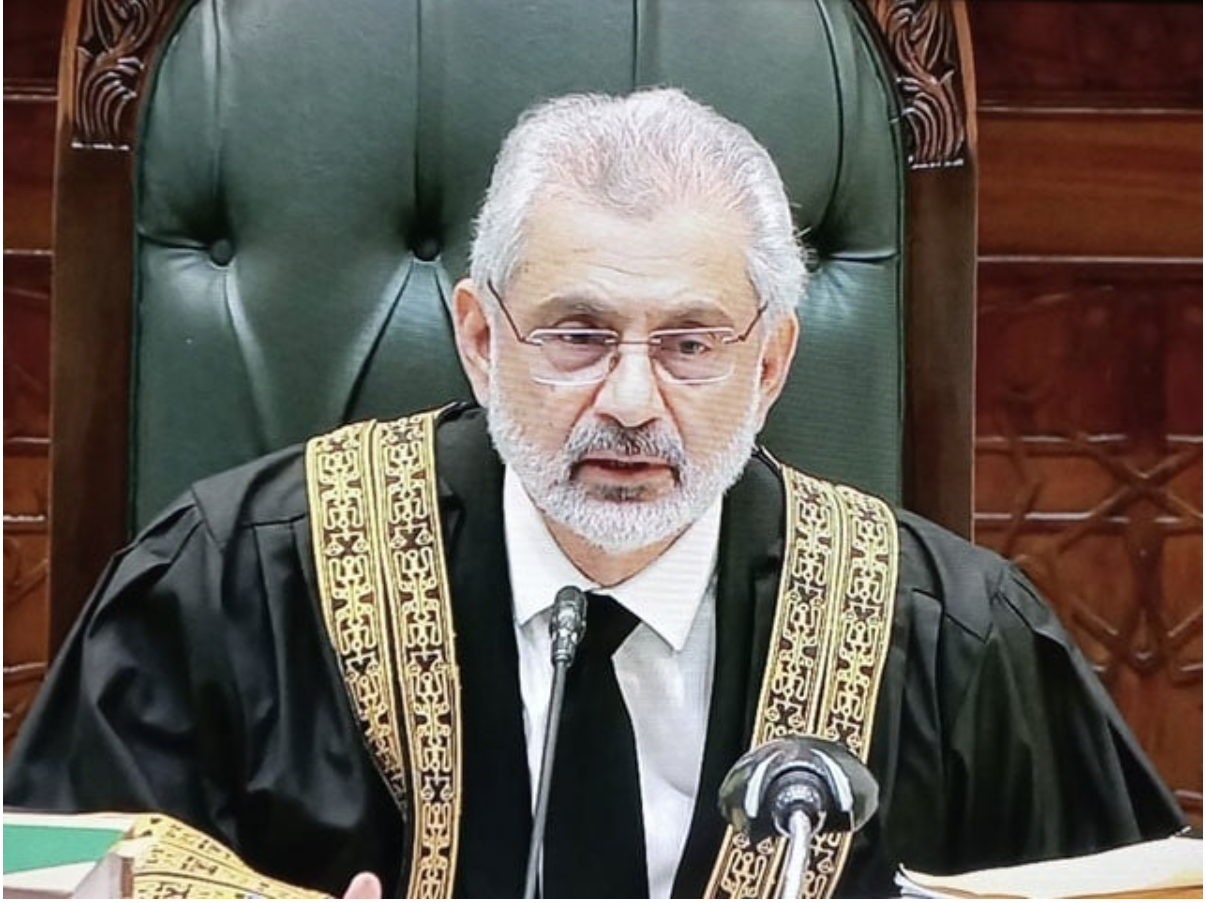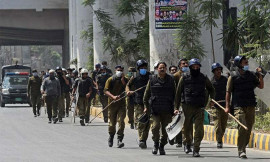
Once again, the Supreme Court, helmed by Chief Justice of Pakistan (CJP) Qazi Faez Isa, finds itself as the key player in steering the course of national politics during the 2023-24 judicial year.
As the curtain rises on the new judicial year on Monday (today), speeches from the CJP, superior bar representatives, and the Attorney General for Pakistan are expected to set the tone for another critical term.
While the outgoing year showcased a harmonious relationship between the judiciary, the executive, and superior bars, it was anything but smooth sailing.
The top court's critical role in enforcing the date of the 2024 general electionscompelling key stakeholders to announce February 8 as the election dayremains a feather in its cap.
However, controversies lurked around every corner.
The January 13 ruling, in which CJP Isa declared PTI's intra-party election illegal and subsequently revoked its election symbol, cast a long shadow over the fairness of the upcoming elections.
PTI leader Imran Khan faced convictions in three separate cases before the polls, with critics pointing to the lack of due process.
The superior judiciary's passive stance on the alleged manipulation of judicial proceedings only fed the impression that it has largely remained a silent spectator, watching from the sidelines as tensions flared.
The PTI has already knocked on the SC's door with a petition to constitute a judicial commission to probe alleged rigging in the elections. The petition remains pending.
Moreover, despite the judiciary's efforts, the election results did not deliver for the "powerful circles."
PTI, now reeling from the loss of three National Assembly seats after CJP Isa's decision to restore the ECP's recounting orders in key constituencies, continues to cry foul, with petitions on alleged rigging still pending before the court.
On the flip side, the current government is at ease with CJP Isa. However, the looming specter of his retirement has fueled concerns within the corridors of power, with officials wary of what the future might hold once Isa exits the scene.
To secure continuity, the government seeks a constitutional amendment to extend the retirement age of judges, including CJP Isa, by three years.
The proposed judicial package has been viewed as a double-edged sword, aiming to extend the retirement age of all judges, including CJP Isa, by three years to maintain the current system.
However, many judges are treading on thin ice with the proposal, fearing it may pull the rug out from under the judiciary's independence. Moreover, the July 12 short order, which remains in reserve, has thrown a wrench in the government's plans for constitutional amendments.
To make matters more complex, Islamabad High Court (IHC) judges voiced their concerns about judicial manipulation following the election results. Six IHC judges, in a letter on March 25, sought the Supreme Judicial Council's guidance on agency interference in judicial proceedings.
Instead of taking a hard line against this interference, the SC under CJP Isa referred the matter to the government for the formation of an inquiry commission. When ex-CJP Tassaduq Hussain Jillani declined to lead the commission, the SC initiated suo motu proceedings.
Meanwhile, several other high courts acknowledged that interference by agencies was an open secret, yet the matter remains unresolved. To date, CJP Isa has not made a statement endorsing the stance of the six IHC judges on agency interference.
Meanwhile, these judges, along with former Lahore High Court chief justice Malik Shahzad Ahmad Khan, have been subjected to malicious campaigns, largely on social media.
This is attributed to the SC's failure to create a deterrent against interference.
Judicial politics
As the judiciary's role in politics expands, internal fissures within the Supreme Court have also widened. Polarisation, which first emerged after the 2018 presidential reference against Justice Isa, has continued to fracture the institution's ability to handle high-profile cases.
During CJP Isa's tenure, two judges linked to ex-CJP Umar Ata Bandial's camp were removed, including Mazahar Ali Akbar Naqvi, who was dismissed for misconduct, and Justice Ijaz ul Ahsan, who resigned without explanation.
The SC remains divided, particularly after the July 12 order, straining relations among senior judges. Judicial politics and national politics have become increasingly intertwined.
Despite more than a year having passed, the SC has yet to rule on the trial of civilians in military courts, with over 80 PTI activists still in military custody.
Since the February 8 elections, a ban on X has been in place, and several journalists questioning the January 13 order have received notices from the FIA, prompted by bar representatives.
Additionally, the SC has failed to devise a strategy to tackle enforced disappearances. Despite CJP Isa's roots in Balochistan, no hearings are being held on the province's missing persons cases.
PTI has expressed deep mistrust in CJP Isa, with its leaders demanding his recusal from their cases. On the other hand, PML-N has thrown its full support behind him.
Notably, Nawaz Sharif's lifetime disqualification was lifted ahead of the general elections, and the SC recently restored amendments to the NAB law.

1672385156-0/Andrew-Tate-(1)1672385156-0-405x300.webp)
















COMMENTS
Comments are moderated and generally will be posted if they are on-topic and not abusive.
For more information, please see our Comments FAQ